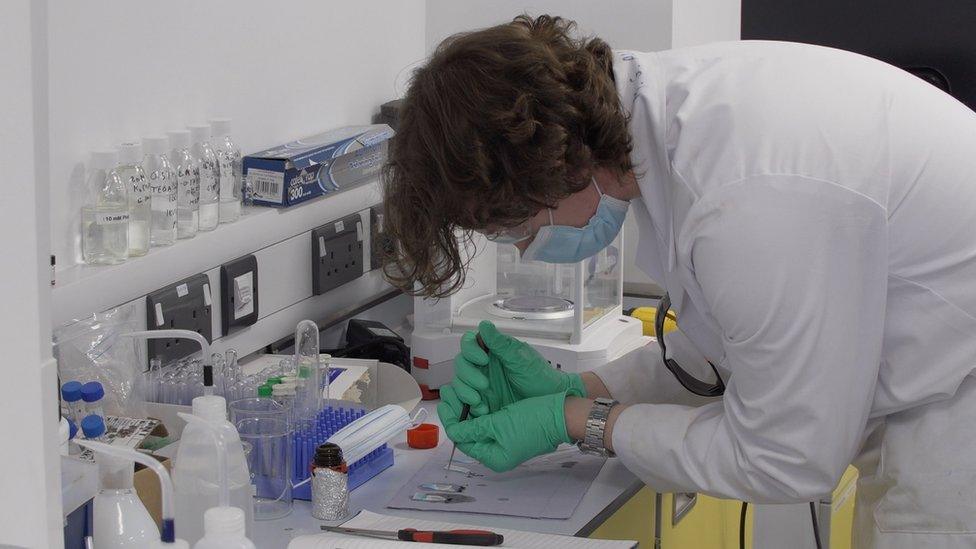Plastic pollution: Could recycling PPE reduce the problem?
- Published
- comments
It takes 450 years for a mask to decompose, Mat Rapson says
Discarded face masks could be melted down and recycled to help tackle plastic pollution.
It is estimated 129 billion single-use face masks are used monthly around the world, with 55 million a day in the UK.
The Welsh government has set a target on creating no waste in Wales by 2050 and a recycling expert wants the NHS to set an example by recycling PPE.
One Welsh firm is now working to turn hospital waste into new masks with 65% recycled materials.
Old PPE like face masks, which people in the UK go through about 19 billion every year, is currently incinerated - producing climate-warming carbon emissions - or sent to landfills.
Mat Rapson, managing director of Cardiff-based Thermal Compaction Group - or TCG, said was a "huge problem".
"We use 55 million masks a day in the UK and globally the figure is 129 billion masks, a lot of which is being discarded into landfills," he said.
How does it work?
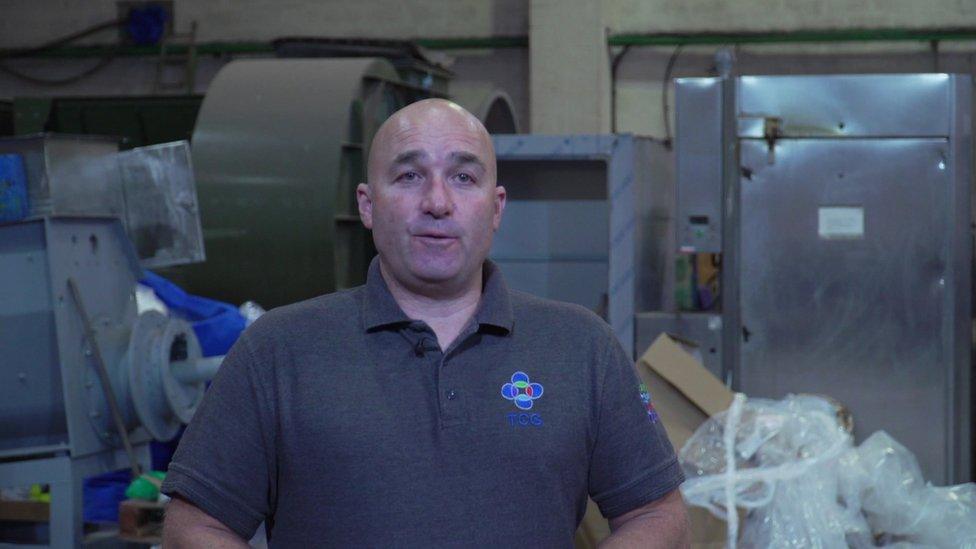
TCG's managing director Mat Rapson said old methods of disposing of PPE are a "huge problem"
TCG is already working with seven hospital trusts across the UK, which are using thermal heating devices to melt down PPE.
The firm heats single-use masks, gowns and curtains to 300C, sterilising all pathogens, and is recycling 300,000 defective masks each month, which would have otherwise been incinerated or sent to landfill.
It turns them into 1m-long blocks that are 99.6% polypropylene - made up of about 10,000 masks - which can be used to make products such as plastic chairs, buckets and toolboxes.
"If a mask goes into landfill, or worse beaches or rivers, it takes 450 years to decompose," Mr Rapson said.
"It's ridiculous. We're just discarding these single-use disposable items, but they're not single-use, they can be recovered and remade multiple times.
"The ideal is that all hospital PPE waste gets recovered and made back into masks for hospitals."
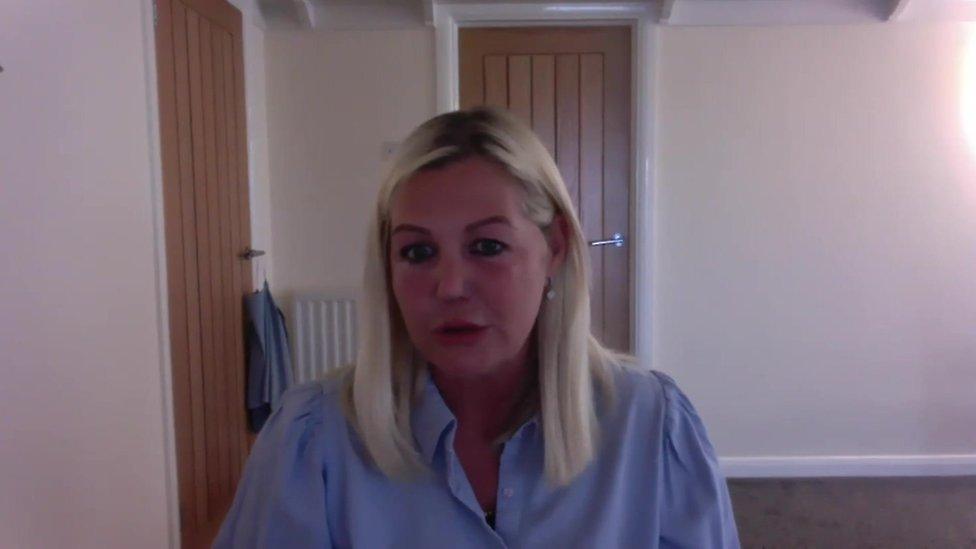
Linda Ball hopes the deal with TCG will get the process going in six months
Linda Ball, chief executive of Upcycled Plastics, said the firm was making masks using plastic waste recovered from the sea.
She said the manufacturing process resulted in a 36% reduction in carbon emissions, and she believed the NHS, the UK's largest user of disposable PPE, could cut its impact significantly by switching to recycled PPE.
She said: "The biggest problem that we have in the medical industry is single-use plastic.
"If we keep buying stuff from China and bringing it over here, the amount of carbon usage is insane."
She said recycling masks, however, was a challenge as the ear hoops, the filter and the nose piece are often made from different types of plastic.
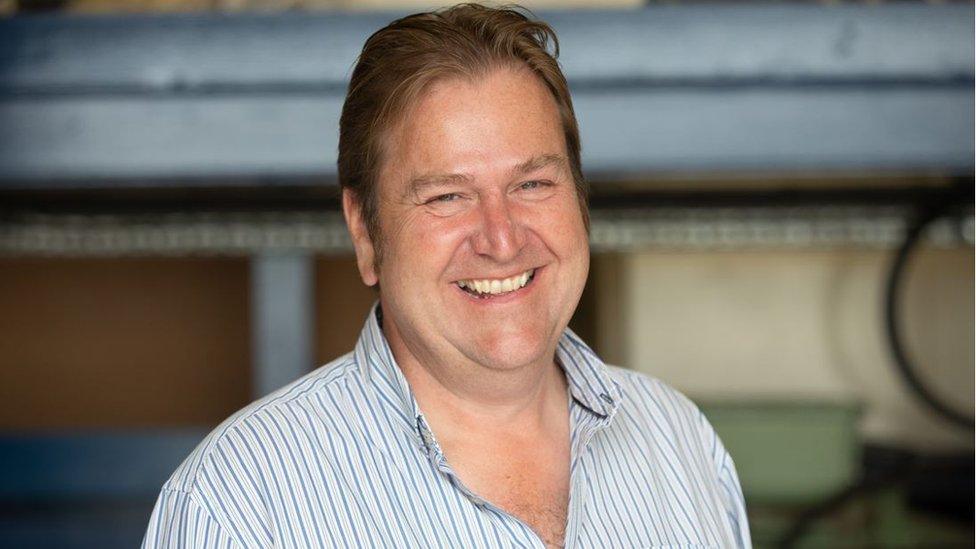
Dr Rob Elias said materials need to be simplified to scale up recycling
Dr Rob Elias, director of the Biocomposites Centre at Bangor University, said all PPE should be made in a way that it can be easily recycled, with one type of material making it "a heck of a lot easier to recycle in the future."
He said polypropylene in a mask can be recycled "five to six times" before it breaks down, but the challenge is "these recycling processes tend to be quite small at the moment, so they lack the scale".
"When you scale up the production process, you get massive energy savings."
But Dr Elias said it was a "great example" of the circular economy, where single-use products like disposable masks are put back into the economy for reuse instead of being thrown away.
That is one of the key goals of the Welsh government's Beyond Recycling strategy, external, which aims to have no waste produced in Wales by 2050.
What is the solution to plastic pollution from PPE?
Prof Gary Walpole, director of the Circular Economy Innovation Community Project at Swansea University, said recycling was something we should be doing an "awful lot more of" and public sector bodies such as the NHS could set an example by recycling PPE.
"The basic premise of circular economy is to keep all products within the circular loop as long as possible," he said.
"There's a lot of energy that goes into creating products like plastic, so the longer you can keep that plastic in use, by reusing it, the less energy use, the less raw material use, and therefore the less carbon you emit."
But Prof Walpole said getting the private sector to adopt this approach on a wider scale was difficult.
He said one possible way forward would be to have the Welsh government mandate large organisations, such as the NHS and local authorities, into making the change.
"The public services buy a lot of goods and services, so it's a good place to start a different way of thinking," he said.
"This particular company is taking plastic products from the NHS where there are high volumes so they are able to leverage economies of scale, prove the concept, and then offer it out into the private sector."
"Discarded PPE is an environmental risk and a contamination risk," says volunteers
It was also one solution to an increase in litter during the pandemic, including face masks and disposable gloves, according to Keep Wales Tidy.
The campaign group said there has been a "significant and widespread increase in personal protective equipment being littered all over the country", posing a danger to wildlife and public health.
Mr Rapson said: "Plastic's not the problem, it's the infrastructure and we have one of the solutions here in Wales.
"Plastic is not disposable, it's not single use, we can actually embrace plastic and use it multiple times."
The Welsh government said: "We are aware of the TCG Sterimelt proposals and welcome innovation from industry to tackle the challenges of single-use plastics in healthcare settings as we move towards a circular economy by 2050."

IF YOU GO DOWN TO THE WOODS TODAY: Five friends bound together by a brutally fragile pact of silence...
FIERCE AND FABULOUS: Hayley Goes... exploring the issues of her generation in a brand new series

- Published22 May 2021
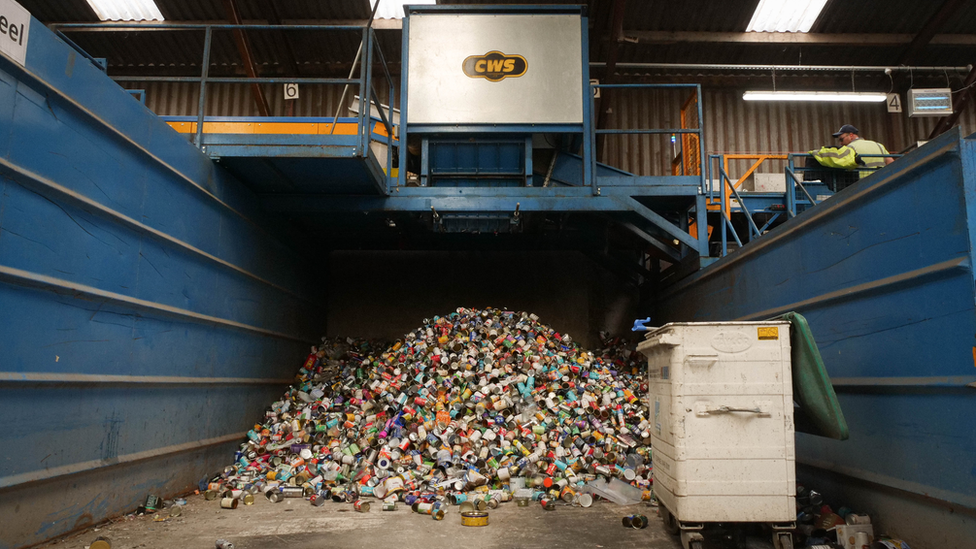
- Published27 September 2020
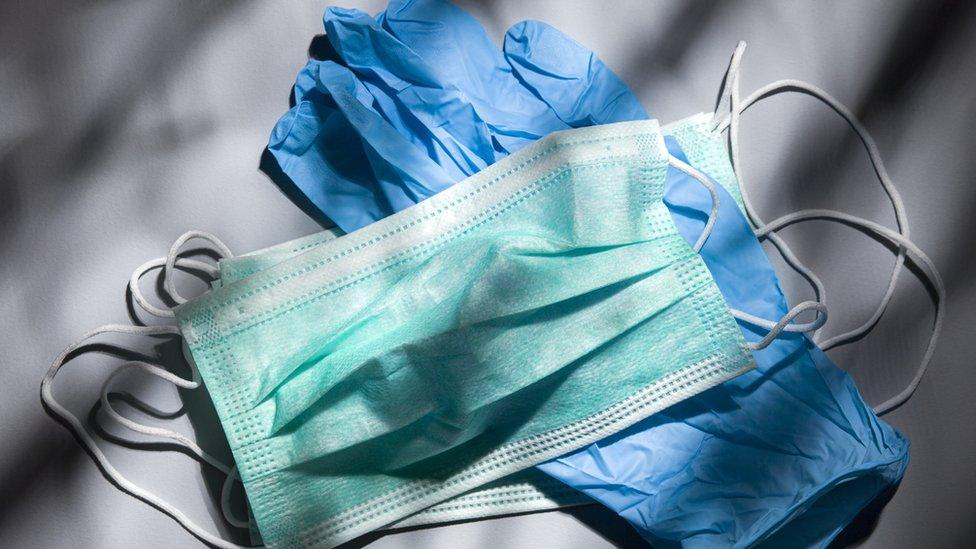
- Published22 December 2020
